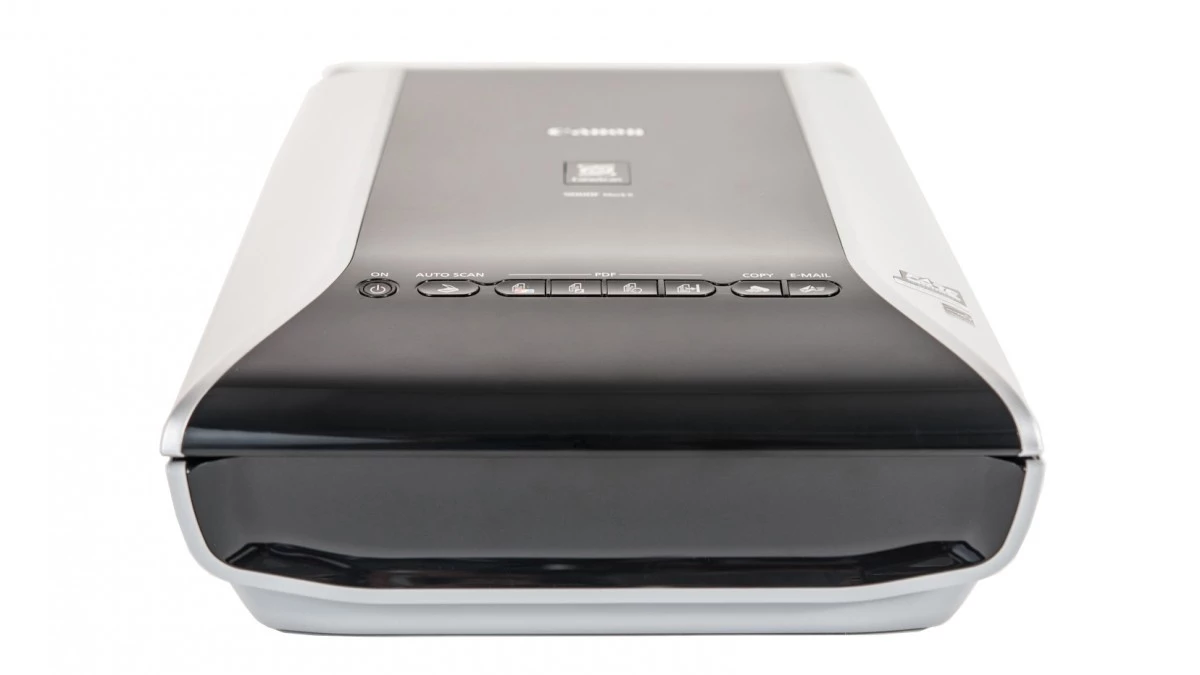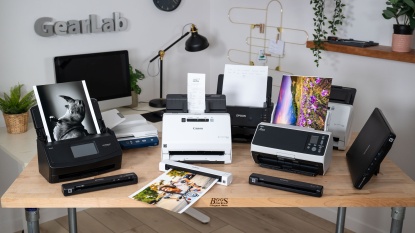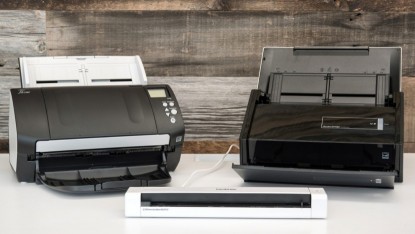Canon CanoScan 9000F Mark II Review
Our Verdict
Our Analysis and Test Results
The Canon CanoScan 9000F MKII is the fastest, easiest to use, and highest quality flatbed scanner we tested. It is our top recommendation for those that need to scan photos or pages out of books - basically anything a document scanner cannot scan.
The Canon CanoScan 9000F MKII can do pretty much everything except scan long documents quickly. This earned it a fairly high overall score. For a breakdown of its performance, see the sections below.
Scanning Performance
The CanoScan produced some of the highest quality scans we saw in our testing, tying it with a few other top models.
Photo Quality
Photo quality is where the CanoScan really shines. You're inevitably going to lose at least some quality when you convert a physical photo into a digital file. However, the CanoScan makes up for this using some automatic image enhancement that looks to correct for any loss of brightness or color vibrancy. In many cases, we found that this actually made the scanned images look slightly better than the originals.
The other flatbed model we tested, the Epson Perfection V600, does not apply any sort of image enhancement to its scans. This resulted in scanned photos that were slightly less vibrant than those from the CanoScan, but were also slightly more accurate to the originals. If you're more worried about accuracy than quality (perhaps you need a perfect digital record of your rare stamp collection), the Epson is probably the better choice.
Text Document Quality
The Canoscsan generally produced high quality text. However, smaller text sometimes looked just slightly fuzzier than the what the high end document scanners produced. If you want a photo scanner that can handle the occasional text document, the CanoScan is more than adequate. However, if you're mostly looking to scan text heavy documents you're better off with a dedicated document scanner.
Speed
The CanoScan is relatively fast for a photo-oriented flatbed scanner, but quite slow for scanning long documents. On average it took the CanoScan 20 seconds to scan an 8"x11" sheet in our testing, a feat that took 60 seconds for the competing flatbed Epson Perfection to complete.
No flatbed is going to match a document scanner in terms of multi-page speed, simply because you have to open the lid and either flip the page over or put in a new page for every page in the document. Even the relatively fast CanoScan takes 20 seconds just to scan a page, and then you have to factor in the extra time of opening the tray and flipping pages. Even the relatively inexpensive Brother DS-620 Mobile Color Page Scanner can easily go through 3 pages a minute, and all the labor required is feeding the paper into a slot. Document scanners with feeding trays can go through in excess of 20 pages a minute, so the CanoScan is a poor choice if you're looking for multi-page document scanning speed.
Software
The base software provided by Cannon is fairly simple for both Mac and PC, with a menu to adjust the settings for each scan mode and buttons to start scanning. It doesn't offer any editing capabilities like some more expensive models but for most people, it is adequate. The automatic border detection was very accurate, which was very useful for irregularly-sized documents. Overall we found this experience preferable to the software included with the Epson Perfection, which felt a bit clunkier and often gave us trouble when working on a Mac OS platform.
If you want to scan text documents the CanoScan's software is a bit more finicky. There is no native text recognition software, you must seek out third party options if you want to create documents with searchable text. The manual suggests a couple of free programs, but all these programs do is pull the recognized text out into a text editor program, they don't make PDFs with searchable text. you also have to go through a few menus to get the CanoScan to treat consecutive scans as different pages of a single document. Here again, the CanoScan works for the occasional text document, but it's a poor choice if that's your main use for a scanner.
User Friendliness
The CanoScan is simple to set up, and software installation is generally frustration free. The controls are also intuitive and easy to understand. We were making digital copies of photos within 10 minutes of opening the box. The tray for scanning slides and film negatives also works well and is straightforward to use.
Value
The CanoScan 9000F Mark II is not cheap but is much more affordable than most of the high scorers in our review. Given the high quality photo scans it can produce, we feel it is quite a good value for those looking to digitize their family photo albums. If you're mostly looking to scan text documents, we would suggest looking at a dedicated document scanner instead.
Conclusion
For those that want to digitize old photos, stamps, pages of a book, film negatives, or basically anything else that can't be fed through a document scanner, the Canon CanoScan 9000F MKII is a good and reasonably priced choice.










